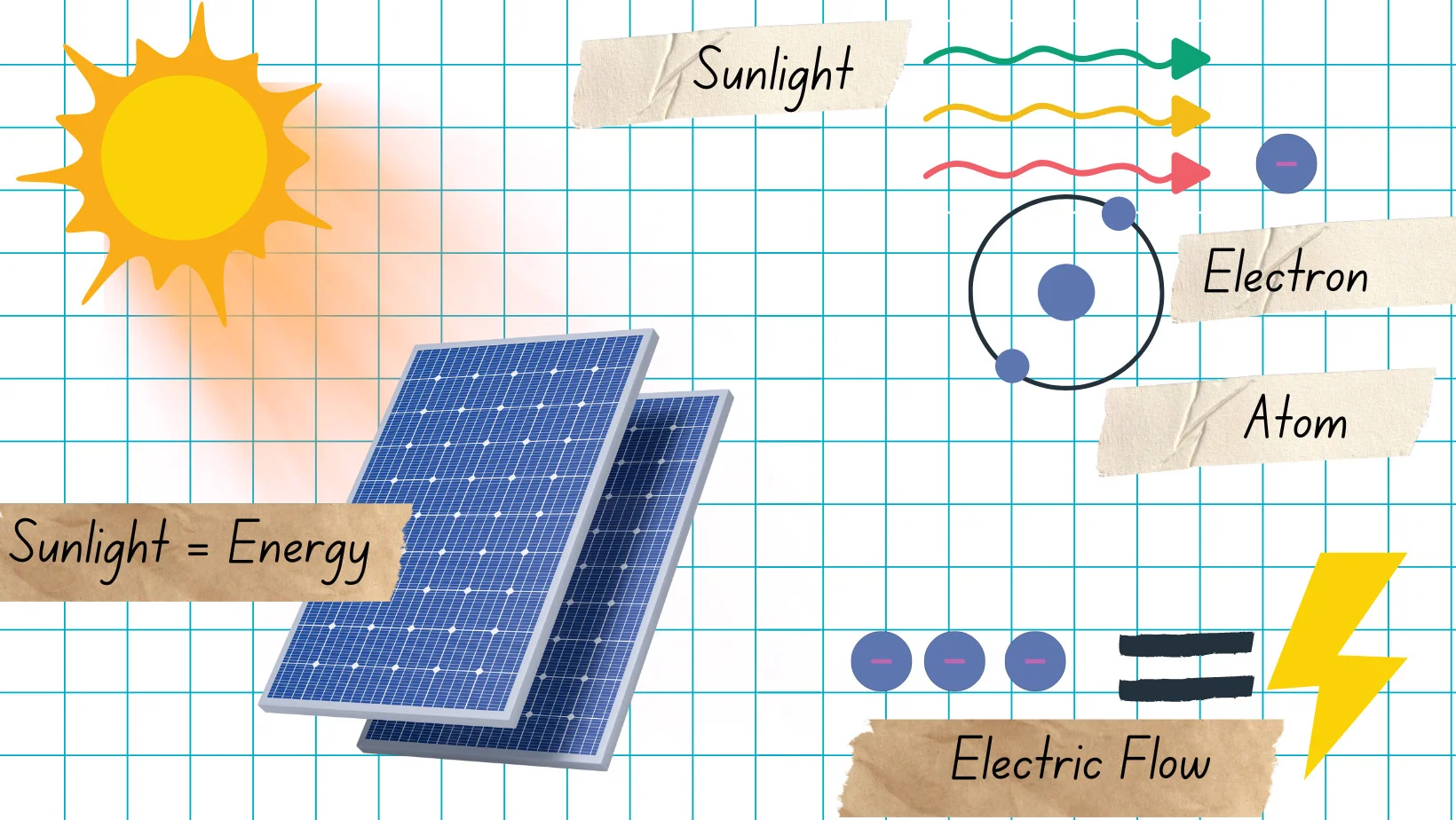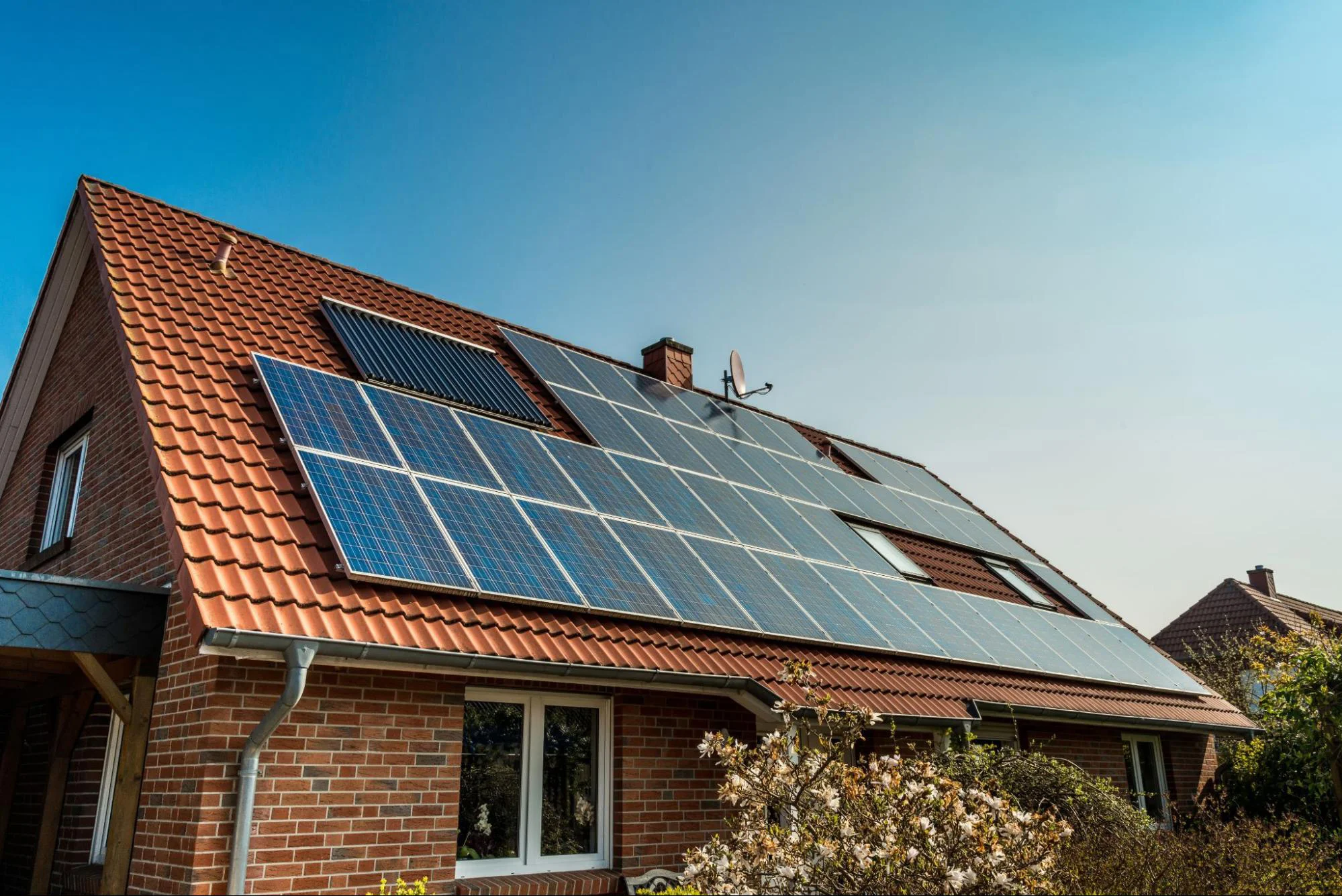See how solar panels can power your home, saving you money every month
The increasing popularity of home solar panel systems is attributed to falling prices, technological innovations and federal and state tax incentives. Additionally, many American homeowners are eco-conscious and value sustainable living.
As solar is becoming more popular among American homeowners, many people still don’t know how solar panels can power your home and help you save money. Home solar panel systems may be technical, but don’t need to be complicated.
Enact empowers homeowners by making solar simple and transparent. We design custom solar systems for homeowners across the country, giving consumers choice. Enact also offers independent insights through our solar monitoring platform.
How do solar panels work?

Solar panels convert sunlight into clean electricity, which can power your home. Panels consist of multiple solar cells wired together. Sunlight hits every location on the Earth’s surface over a year. Technologies can capture this solar radiation and turn it into clean energy.
Solar cells convert sunlight into clean electricity, which can power your home, through the photovoltaic effect. The photovoltaic effect is a process that generates an electric current in a solar cell.
In simple terms, a solar cell allows particles of light — or photons — to knock electrons free from atoms. This effect causes electrons to flow, creating an electric current.
Solar panels are sometimes called photovoltaic systems or PV systems after the photovoltaic effect.
What are solar cells?
Photons absorbed into the cell generate electricity. Electrons from the semiconductor material are knocked off from the material’s atoms. The flow of electrons is electricity, which can power your home.
Solar cells can generate electricity from sunlight without creating carbon dioxide or other greenhouse gasses. Solar energy does not require significant amounts of water or pollute water or air pollution.
How can solar panels power my home?

You can power all or most of your home’s energy needs from your rooftop. The typical American home requires 17 to 26 solar panels, but every situation is different.
These rooftop solar panels can generate clean energy in the form of Direct Current (DC) electricity. The direct current flows from your solar panels to your system’s inverter, which converts the DC to Alternating Current (AC). Household appliances require AC energy to run.
Clean energy can power your home from your panels through your inverter to your home. The right solar panel system can generate enough electricity to significantly reduce your monthly utility bills.
Enact’s award-winning platform designs custom solar systems for homeowners across the U.S. Homeowners can see their utility bills shrink by 75% or more with an Enact-designed solar system.
For homeowners with electric vehicles, integrating EV solar panels into their system provides a tailored solution for charging EVs directly from the sun’s energy. These specialized panels optimize solar energy use specifically for EV charging, offering even greater savings on electricity costs and reducing reliance on fossil fuels.
What are the benefits of having a home solar panel system?
Save on monthly utility bills
Even if solar won’t completely eliminate your utility bill, the savings can still be significant. Nobody wants to spend more at the end of the billing cycle. Home solar can help lower your monthly bills. With Enact, you can reduce your utility bill by up to 75% or more, significantly reducing your utility bills.
Watch your system pay for itself
As you save money each month, these savings will eventually stack up and exceed the cost of your solar system. This is called the payback period.
Government or utility incentives also contribute to your payback period. The Federal Investment Tax Credit lets you write off 30% of the installation cost from your taxes for a qualifying system. Feed-in tariffs and net metering policies reward solar homeowners for excess solar energy sent to the grid.
Solar panels can last for up to 25 years or more. Depending on the system, home and situation — the average Enact customer’s payback period was between four to ten years. After your system pays for itself, any additional savings are a gain.
Government Incentives
In the U.S., the federal government offers an Investment Tax Credit (ITC) for qualified solar installations. Homeowners can submit a form during tax season and get a tax credit for 30% of the cost of equipment and installation. The tax credit also includes costs associated with battery storage. Enact’s team of energy advisors works with our customers to provide needed IRS forms for the federal ITC.
Additionally, states may offer solar incentives to encourage clean energy adoption. Some county, city or municipal governments may also include tax credits or rebates.
Lower your carbon footprint
Unlike other forms of renewable energy, solar panels can be mounted onto your rooftop and can provide consistent daytime energy for years to come.
How to get solar panels with Enact?
Going solar does not have to be complicated. Enact offers homeowners a one-stop shop for getting a custom solar panel system design, installation and interconnection coordination and post-installation monitoring.
To get started, interested homeowners can schedule a free consultation with an energy advisor and receive a free custom quote. Scheduling a consultation is a simple process, all we need is your name, contact information and a copy of your latest utility bill.
During your consultation, our advisor will present a custom quote for your home and explain the Enact experience. You can ask any question, make any suggestion or voice any concerns with our friendly team of advisors.
Once you decide on a system design, Enact will coordinate the solar installation schedule with a trusted local installer in our network. Our network of preferred installer partners handles the installation and interconnection process, while you can relax and get updates from the Enact team.
In around two months, you will have a customized solar system for your home. Enact is in the business of simplifying solar — making it easy for you to get the right system for your home. After the process is complete, you can watch your utility bills shrink and the savings build up.


